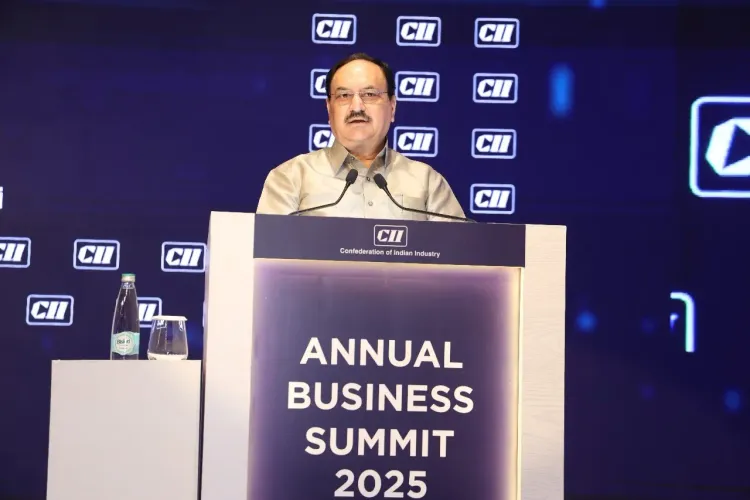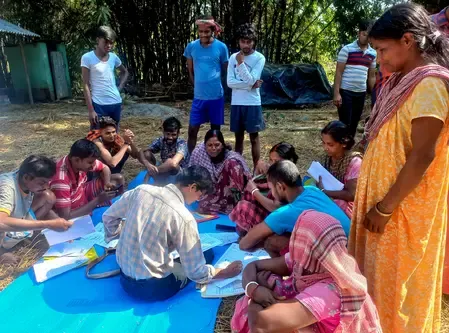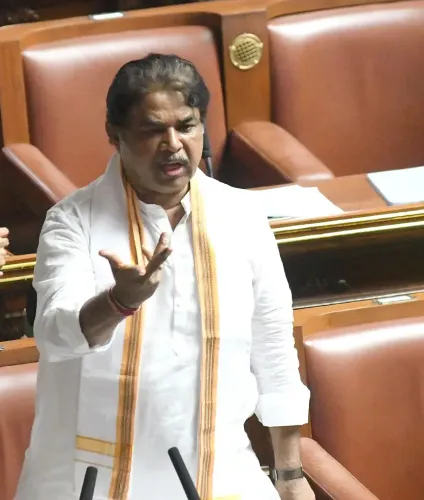How are Public-Private Partnerships Essential for Enhancing Preventive Healthcare?

Synopsis
Key Takeaways
- Public-private partnerships are vital for healthcare expansion.
- Innovation in technology can enhance preventive care.
- The focus on Viksit Bharat by 2047 is crucial for future healthcare systems.
- Reducing bureaucratic delays is important for timely healthcare progress.
- India is emerging as a global hub for pharmaceuticals and medical devices.
New Delhi, May 29 (NationPress) A collaborative effort between public and private sectors is crucial for expanding the reach of preventive healthcare in India, stated Union Health Minister JP Nadda during the CII Annual Business Summit 2025 held on Thursday.
Highlighting the theme “Building Trust- India First”, Nadda advocated for a coordinated national initiative to fortify healthcare systems in alignment with India’s 2047 development roadmap.
The Union Minister further emphasized the significant influence of the private sector in propelling India's healthcare industry. He encouraged private entities to innovate in AI and technology-based solutions to facilitate widespread screenings and telemedicine across the healthcare landscape.
“Public-private partnerships can play a vital role in ensuring early detection and preventive healthcare reaches every corner of the country,” he remarked.
During the session focused on healthcare for Viksit Bharat by 2047, he called for the establishment of systems that cater to the needs of future generations.
“Health transformation is a gradual process. We need to plan now to create systems that will benefit future generations,” Nadda asserted, reiterating the government's unwavering commitment to healthcare reforms, innovation, and accessibility.
The Minister called for a more humane, responsive, and timely regulatory framework, particularly concerning the operations of key organizations.
“While maintaining the highest standards of quality and safety, we must also prevent unnecessary delays; red tape should not hinder timely advancements,” he advised.
Moreover, Nadda underscored India’s emergence as a center for pharmaceuticals and medical devices, citing the country’s capability to meet global demands, particularly evident during the Covid-19 pandemic.
“We transitioned from dependency to reliability,” he noted.
Nadda reaffirmed the government's commitment to a citizen-centric approach grounded in innovation, collaboration, and compassion. He urged the industry and all stakeholders to work together to establish India as a global benchmark in healthcare by 2047.










